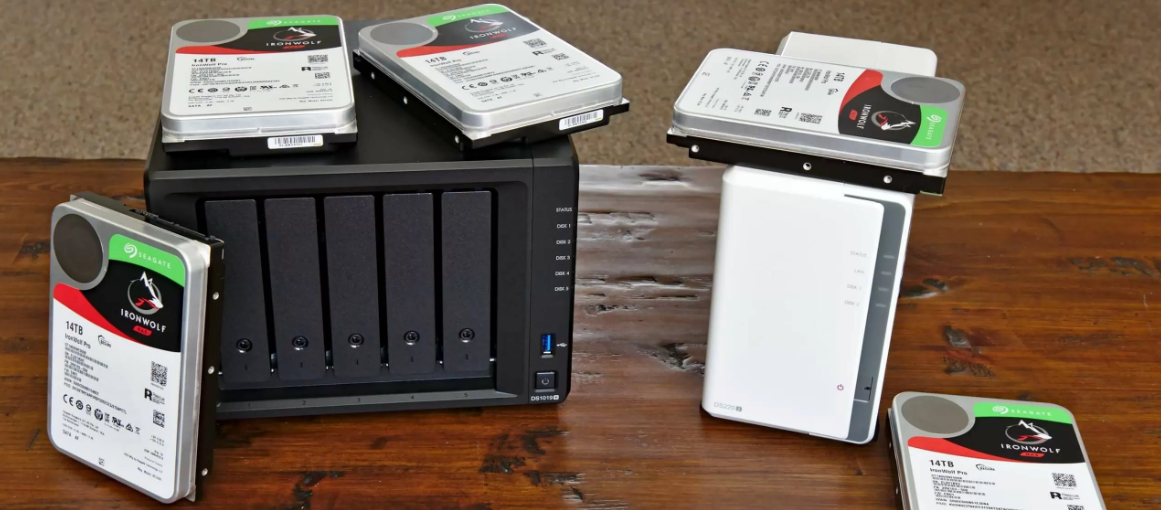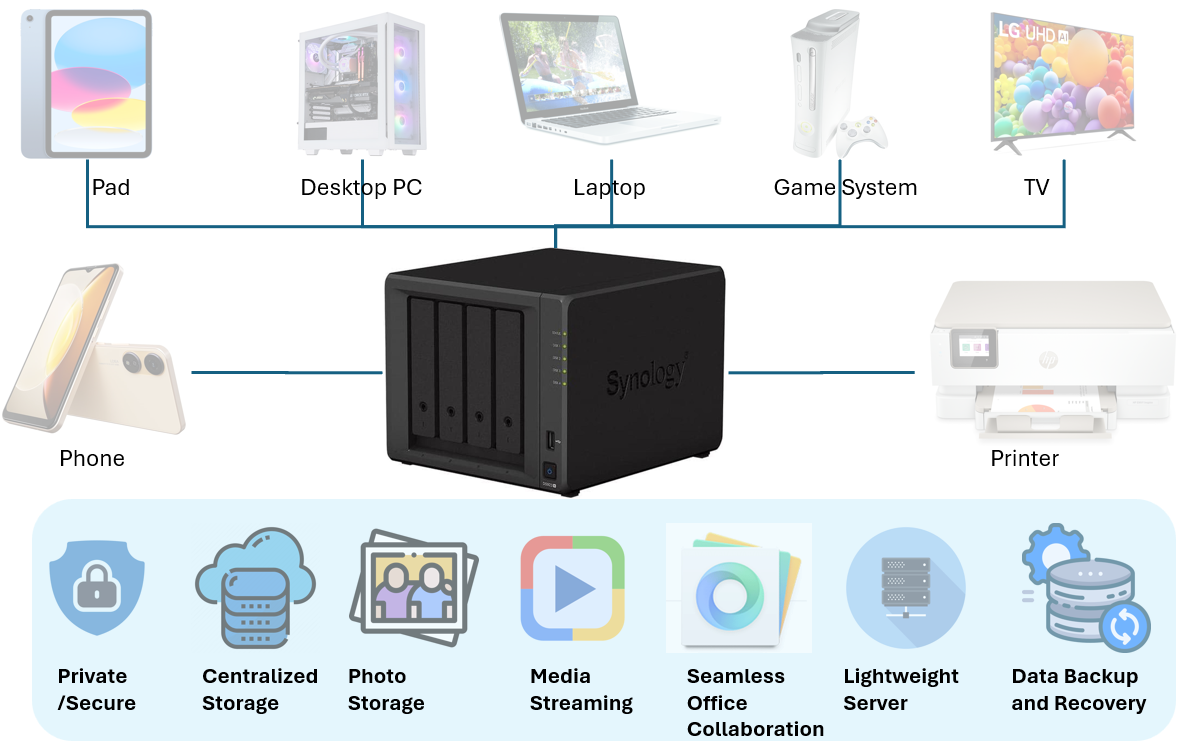
What is a NAS and Why Use a NAS?
In today’s digital era, managing data efficiently and securely has become essential. Both individuals and businesses require scalable and reliable solutions for storing, accessing, and protecting their data. A Network Attached Storage (NAS) system offers an ideal solution for these needs. This article explores what a NAS is and why it’s a valuable addition to your data management toolkit.
What is a NAS?
A NAS, or Network Attached Storage, is a specialized storage device connected to a network that enables multiple users and devices to store, retrieve, and manage data from a centralized location. Unlike standalone external hard drives, NAS devices function as file servers accessible across an entire network.
NAS devices typically feature:
- One or more hard drives housed in a dedicated enclosure.
- A network interface for seamless connectivity.
- A lightweight operating system optimized for file sharing and data management.
NAS systems cater to diverse needs, ranging from compact models for home use to robust enterprise solutions for large businesses.

Key Features of NAS
1. Centralized Storage
Organize all your files in one place, simplifying access and backups.
2. Network Access
Access stored files from any device connected to the network, including computers, smartphones, and tablets. Many NAS systems also enable secure remote access over the internet.
3. Redundancy and Data Protection
Higher-end NAS devices support RAID configurations, safeguarding your data against drive failures by mirroring or distributing it across multiple disks.
4. Scalability
Expand your NAS storage by adding more drives or upgrading existing ones, making it suitable for growing data needs.
5. Multi-User Collaboration
NAS systems allow multiple users to work on shared files simultaneously, improving team productivity and collaboration.
6. Media Streaming
Stream photos, music, and videos directly to devices such as smart TVs and gaming consoles using built-in media server features.
Why Use a NAS?
1. Enhanced Data Security
With features like automated backups, encryption, and access controls, a NAS protects your data from unauthorized access, loss, or cyber threats.
2. Cost-Effective Storage Solution
Compared to recurring cloud storage fees, a NAS provides an affordable, one-time investment with no monthly charges (except for maintenance or upgrades).
3. Simplified Backup and Recovery
Schedule automated backups for all devices on your network, ensuring that recovery is quick and centralized in case of hardware failures or accidental deletions.
4. Remote Access and File Sharing
Securely access or share your files from anywhere in the world, making NAS an excellent option for remote workers and distributed teams.
5. Private Cloud Alternative
Enjoy the benefits of cloud storage without surrendering control of your data to third-party providers.
6. Ideal for Multimedia Libraries
Efficiently store and stream large collections of photos, music, or videos to devices like smart TVs, streaming boxes, and gaming consoles.
7. Improved Collaboration
Enable teams to collaborate effectively by providing a shared workspace for documents, projects, and resources. Ensure everyone has access to the latest file versions.
Conclusion
A NAS is more than just a storage device—it’s a versatile tool for managing, securing, and accessing your data. Whether you’re an individual seeking a personal cloud or a business looking to streamline data workflows, a NAS offers the scalability, reliability, and flexibility needed to stay organized and prepared for the future. As data continues to grow in importance, investing in a NAS system is a forward-thinking solution for modern data management.